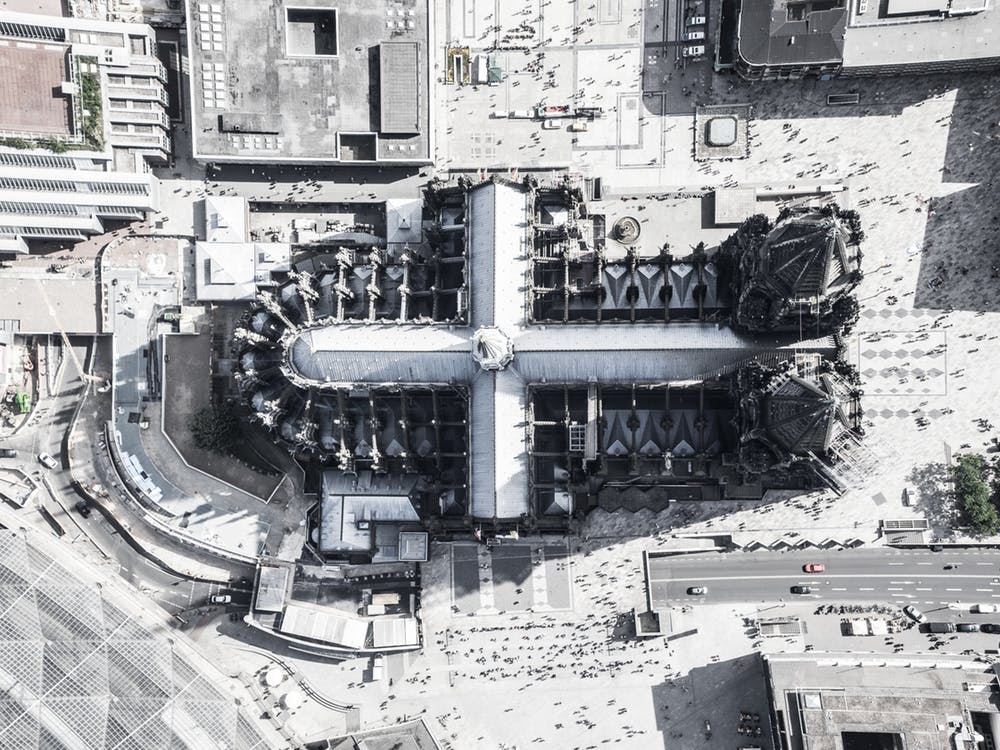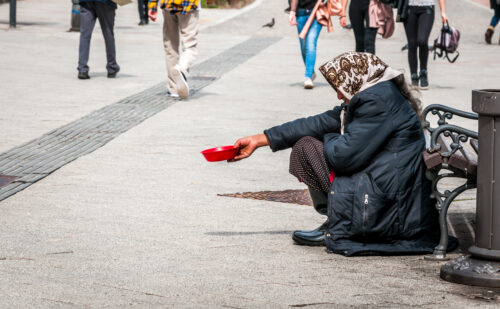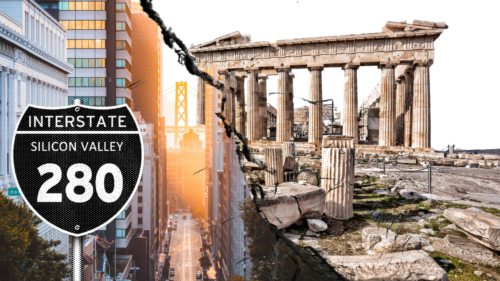Arthur Brooks, president of the American Enterprise Institute, writes an interesting piece at America Magazine about his two conversions, first to Catholicism, and then to free market capitalism. The first conversion began during a trip to Mexico, at the shrine of Our Lady of Guadalupe.
Years after his religious conversion, Brooks found himself undergoing a professional and ideological change of heart. Though he was a musician and a self-described “social justice warrior” who “regarded capitalism with a moderately hostile disposition,” he came to believe through his study of economics that free markets had been a force for good in the world, bringing billions out of poverty. He put down his French horn and began graduate work in economics and policy analysis.
Over the course of the article, Brooks goes on to defend his pro-free market positions and respond to critiques of capitalism, many of which have come from fellow Catholics.
It is interesting that Brooks brings up his “conversion” to free enterprise in the context of his conversion to Catholicism. For as long as the question has existed, the Catholic Church has had a cool or mixed attitude towards capitalism, always quicker to offer precautions than unreserved praise: the common good precedes individualistic pursuit of wealth; employers have a duty out of justice to provide workers with a living wage and not just treat them as cheap machinery; private property is not an absolute right, but contingent upon whether the basic needs of others have been met.
Which is not to say that the Church has ever given a sweeping condemnation of free enterprise, either. Pope John Paul II stressed the importance of rejecting a capitalism which was “not circumscribed within a strong juridical framework which places it at the service of human freedom in its totality” but thought it possible to embrace a “positive role of business, the market, private property and the resulting responsibility for the means of production, as well as free human creativity in the economic sector.” Brooks would probably affirm that the latter is just the type of capitalism he believes in.
At the same time, the Catholic Church has rarely been so nuanced in its condemnation of socialism or communism, and throughout its tradition has called upon workers and employers to reconcile their differences through mutual charity rather than through revolution and a systemic elimination of inequality.
The Catechism of the Catholic Church captures these twin negations concisely: “Regulating the economy solely by centralized planning perverts the basis of social bonds; regulating it solely by the law of the marketplace fails social justice, for "there are many human needs which cannot be satisfied by the market." Reasonable regulation of the marketplace and economic initiatives, in keeping with a just hierarchy of values and a view to the common good, is to be commended.” This statement obviously leaves room for interpretation, and draws the boundaries within which Catholics of good will can differ.
This persistent Catholic tradition of reserve towards free enterprise is worth exploring more deeply in one of its newest forms. In Laudato Si', Pope Francis elaborates a critique of market forces from the point of view of valuing biodiversity. All animal species “have value in themselves,” and their existence is a good thing. But because of “human intervention, often in the service of business interests and consumerism,” we are destroying ecosystems and driving species to extinction. As a result of our quest to extract natural resources for our consumption, “thousands of species will no longer give glory to God by their very existence.” Unfortunately, preserving species requires a foresight that is not often compatible with the desire “for quick and easy profit.”
This tendency towards destruction of natural beauty is difficult to avoid within the free market mindset. The potential to acquire wealth is concrete and alluring compared to the abstract conviction that we need to preserve biodiversity.
It would be interesting to see how Brooks might respond to the argument elaborated by Pope Francis in Laudato Si’. Today, when the political consensus around free markets is taking a beating, it is worth renewing the conversation: is there a way to maintain the benefits of poverty alleviation brought about by capitalism while prioritizing those goods that the law of the market can’t account for?






